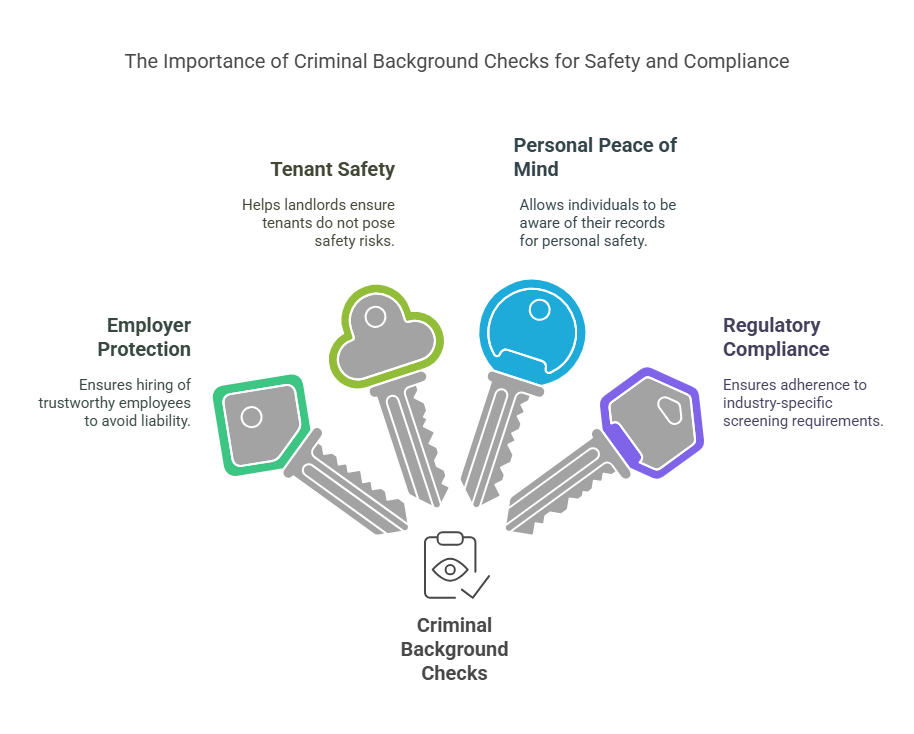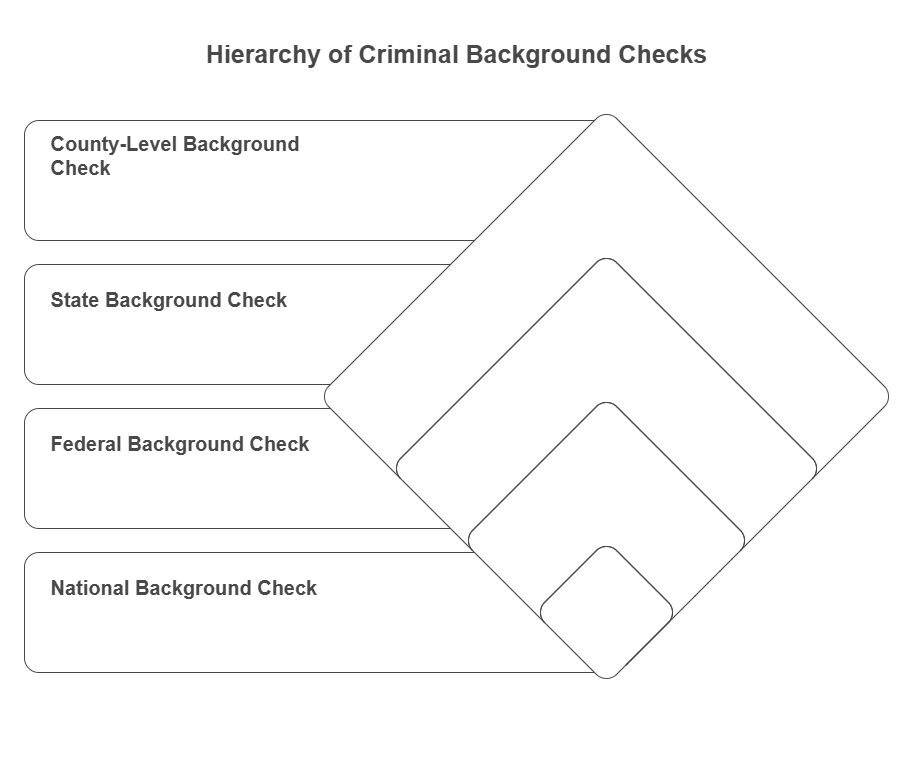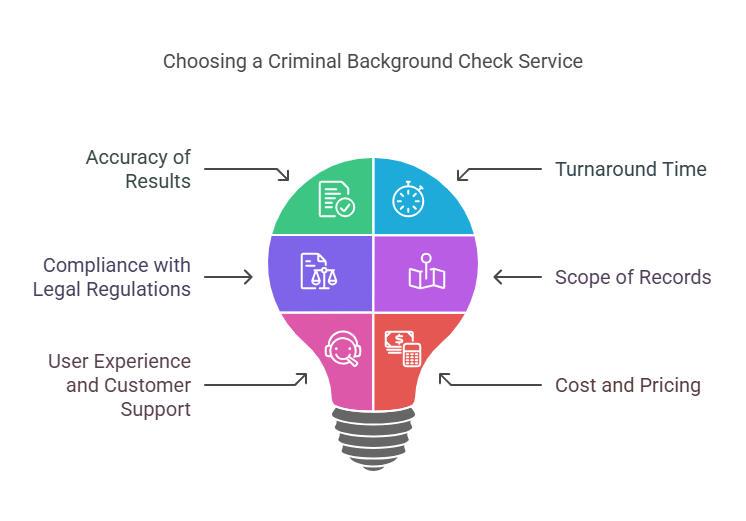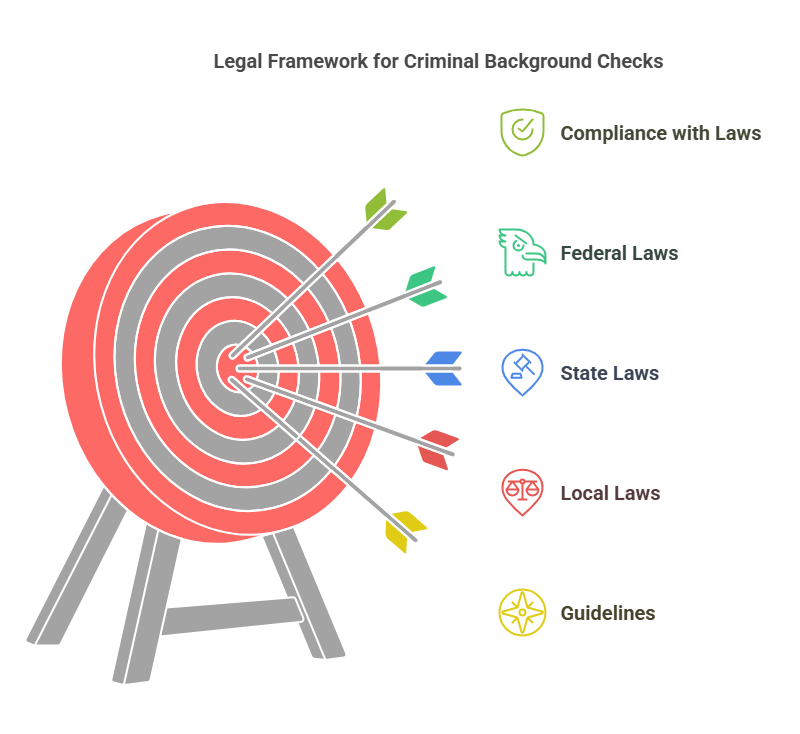Best Services for Criminal Background Check

Understanding Criminal Background Checks and Why They Matter
Criminal background checks have become an essential tool for ensuring safety, security, and compliance in a wide range of situations. Whether you’re an employer vetting potential hires, a landlord screening tenants, or an individual looking to ensure your own record is accurate, criminal background checks offer important insights into a person’s history. In this first part, we will define what a criminal background check is, explain why it’s crucial, explore who typically needs one, and delve into the different types of criminal background checks available.
What is a Criminal Background Check?
A criminal background check is a process used to verify an individual’s criminal history by investigating records from various sources, including local, state, and federal law enforcement agencies. This check is often a part of the pre-employment process, tenant screening, or gun purchases, but it can also be conducted by individuals looking to monitor their own criminal record.
This type of background check includes searches for criminal convictions, arrest records, and outstanding warrants, which can help reveal whether an individual has been involved in any criminal activity. Depending on the purpose, criminal background checks may examine a person’s entire criminal history, or just specific types of offenses such as felonies or misdemeanors.
Why Do Criminal Background Checks Matter?

Criminal background checks are vital for various reasons, helping to reduce risk and ensure safety across different sectors. Here’s why they matter:
- Employer Protection: Employers use criminal background checks to ensure they are hiring trustworthy and qualified employees. This helps avoid liability and ensures that potential employees are a safe fit for the company.
- Tenant Safety: Landlords rely on background checks to ensure the individuals renting their properties have a clean record and won’t pose a risk to the safety of other tenants.
- Personal Peace of Mind: Individuals may conduct background checks to ensure they are fully aware of their criminal record before engaging in important activities, such as applying for a job, renting a home, or securing a loan.
- Regulatory Compliance: Some industries, like healthcare and finance, are required to screen employees regularly as part of regulatory compliance.
Who Needs a Criminal Background Check?
While criminal background checks are commonly associated with employers and landlords, a wide range of individuals and organizations may require them. Here’s a breakdown of who typically needs to perform or undergo criminal background checks:
1. Employers
Employers across various industries, from retail to healthcare to finance, need criminal background checks to ensure they are hiring responsible and trustworthy candidates. This process is especially critical for positions involving sensitive information, vulnerable populations, or public safety.
- Pre-employment screening: Employers often request background checks before extending a job offer.
- Ongoing background checks: For some jobs, particularly in high-risk industries, employers may conduct periodic checks to ensure ongoing suitability.
2. Landlords
Landlords and property managers perform criminal background checks as part of the tenant screening process. This helps them determine if potential tenants pose a risk to the property or the safety of other residents.
3. Individuals
Individuals may request a background check on themselves or others. This is often done before applying for jobs, renting properties, or seeking financial services.
- Self-checks: People may want to verify their own criminal records to ensure there are no surprises in applications.
- Personal relationships: Some people may check the background of new acquaintances, especially if they will have significant involvement in their lives.
4. Legal and Governmental Agencies
Government agencies often use criminal background checks for tasks such as:
- Licensing and certification for specific professions (e.g., teaching, law enforcement, medical professionals).
- Security clearance for jobs that require access to sensitive government information.
- Gun purchases, where background checks are mandatory before purchasing firearms.
Types of Criminal Background Checks

Criminal background checks vary depending on the type of record they examine and the jurisdiction they cover. Let’s review the most common types of criminal background checks and the differences between them.
1. Federal Background Check
A federal background check investigates crimes that violate federal law, such as drug trafficking, immigration violations, or white-collar crimes like fraud. This search typically checks databases like the Federal Bureau of Investigation (FBI) and includes crimes that are prosecuted at the federal level.
- Scope: Covers all federal offenses across the U.S.
- Ideal For: Employers, landlords, or agencies that need to check federal offenses.
2. State Background Check
State background checks search for crimes that have occurred within a particular state. This includes any state-level crimes that are prosecuted by the state government, such as assault, theft, or burglary.
- Scope: Covers crimes that happen within a specific state.
- Ideal For: Employers, landlords, or individuals focusing on offenses within a specific state.
3. County-Level Background Check
A county-level criminal background check searches the local records of a specific county or district. These checks are valuable for uncovering local offenses that may not be recorded at the state or federal levels, such as misdemeanors and petty crimes.
- Scope: Focuses on records from a specific county or district.
- Ideal For: Landlords or employers concerned with local crimes in a particular geographic area.
4. National Background Check
A national background check searches multiple databases across the country and compiles information from federal, state, and county records. This is a broader check that covers multiple jurisdictions for a more comprehensive view of an individual’s criminal history.
- Scope: Covers federal, state, and county records across the U.S.
- Ideal For: Employers and individuals looking for a complete criminal history.
Comparison Table of Different Types of Background Checks
| Type of Background Check | Scope | Ideal For | Common Use Cases |
|---|---|---|---|
| Federal | Federal law violations | Employers, government agencies | Federal crimes like fraud, drug trafficking, white-collar crime |
| State | Crimes within a state | Employers, landlords, individuals | State-level crimes like theft, assault, and drug offenses |
| County-Level | Local county or district records | Landlords, employers, individuals | Local misdemeanors or petty crimes that might not show up in state or federal checks |
| National | Nationwide records (federal, state, county) | Employers, individuals, landlords | Comprehensive check for anyone seeking a broad look at someone’s criminal record |
Factors to Consider When Selecting a Criminal Background Check Service

When choosing a criminal background check provider, it is crucial to evaluate a range of factors to ensure you select a service that meets your specific needs. Here are the key aspects to consider:
1. Accuracy of Results
Accuracy is the most critical factor when selecting a background check service. A service that provides inaccurate information or fails to find relevant records could lead to serious legal and business consequences. Ensure the service provider uses reliable and up-to-date sources, including national, state, and county databases, and verifies the information from reputable law enforcement agencies.
2. Turnaround Time
The speed of the background check process can vary significantly between providers. Depending on the type of check and the depth of the search, turnaround times may range from 24 hours to several days. For employers or businesses, a quick turnaround is essential to avoid delaying the hiring process. Ensure the provider can meet your timeframe requirements and provide an estimated delivery time upfront.
3. Compliance with Legal Regulations
Criminal background checks are governed by several laws and regulations, including the Fair Credit Reporting Act (FCRA), Equal Employment Opportunity Commission (EEOC) guidelines, and state-specific laws. A reliable service provider must comply with these regulations to ensure that background checks are conducted ethically and legally. For example, they must obtain consent from individuals being screened, provide adverse action notices if a report leads to a denial, and give applicants a chance to dispute inaccurate information.
4. Scope of Records
The best background check providers will offer a comprehensive range of records, including:
- National databases for a broad overview.
- State-level checks for offenses that fall under state jurisdiction.
- County and local records for a more granular view of an individual’s criminal history.
Choose a provider that offers the depth of coverage you need based on the nature of the screening (e.g., pre-employment, tenant screening, etc.).
5. User Experience and Customer Support
A user-friendly platform with an intuitive interface can significantly ease the process of requesting and receiving background check results. Additionally, responsive customer support is essential to address any questions or concerns during the process. Choose a provider that offers 24/7 customer service and provides accessible tools for tracking the status of your checks.
6. Cost and Pricing
Pricing for background checks can vary depending on the provider and the type of check. It’s essential to weigh the cost against the quality of the service provided. While you may find some inexpensive options, remember that the cheapest service might not always provide the most reliable or comprehensive results. Be sure to ask about any hidden fees or additional charges for expedited services.
Top Criminal Background Check Providers
To help you make an informed decision, here are some of the leading criminal background check providers available today, along with their key features.
1. Checkr
Checkr is one of the most popular background check services used by employers and individuals alike. It is known for its accurate and comprehensive reports, as well as its ability to comply with federal and state regulations. Checkr provides criminal checks across multiple jurisdictions, including county, state, and federal databases.
- Key Features:
- Fast turnaround times (often within 24 hours).
- Robust compliance with FCRA and EEOC standards.
- Easy-to-use interface and integration with job application software.
- Detailed criminal records from federal, state, and county sources.
- Best For: Employers seeking fast and reliable background checks for hiring.
2. GoodHire
GoodHire offers background checks for employers, particularly in industries like healthcare, retail, and finance. The service is praised for its accuracy and transparency in reporting criminal history. GoodHire also offers customizable packages for different types of employers.
- Key Features:
- Nationwide criminal records with multi-jurisdictional searches.
- Easy integration with applicant tracking systems (ATS).
- Provides results that include both felony and misdemeanor offenses.
- Offers an option for self-screening for individuals.
- Best For: Companies needing comprehensive and customizable background checks.
3. Intelius
Intelius is a consumer-focused background check service that offers criminal background checks, identity verification, and other personal history reports. It is commonly used by individuals to check their own records or to screen potential employees, tenants, or contractors.
- Key Features:
- Affordable pricing for individual users.
- Offers multi-state criminal searches.
- Provides additional services like address history and contact information.
- Fast and easy-to-understand reports.
- Best For: Individuals looking for a straightforward background check.
4. BeenVerified
BeenVerified provides a range of background check services, including criminal history, public records, and address information. This service is ideal for both personal background checks and for tenant screening.
- Key Features:
- Comprehensive report covering criminal records, social media profiles, and contact information.
- Easy-to-use mobile app for conducting checks on the go.
- Subscription-based service for ongoing access to reports.
- Best For: Individuals and landlords needing a wide range of information.
The Criminal Record Verification Process
The process of conducting a criminal background check involves several critical steps to verify an individual’s criminal history. Below is a breakdown of how the verification process typically works:
- Gathering Basic Information: The first step involves collecting essential personal information from the subject, including their full name, date of birth, address history, and social security number. This helps narrow down the search to relevant records.
- Conducting the Search: The background check provider then searches relevant databases at the federal, state, county, and local levels, depending on the type of check requested. Some services use third-party databases to conduct more comprehensive searches, while others may rely on official government sources.
- Reviewing the Results: Once the search is completed, the background check provider compiles the results into a report, which includes information on any criminal convictions, arrest records, or active warrants found.
- Verification and Reporting: The provider verifies the accuracy of the results before submitting the final report. They may request additional information if necessary to ensure completeness.
- Delivery of Results: The background check results are typically delivered to the requester via email or through an online portal, depending on the provider.
Exact Background Checks: How We Help
At Exact Background Checks, we understand the importance of reliable and efficient criminal background checks. Whether you are an employer, landlord, or individual, we provide tailored services to meet your specific needs.
Key Benefits of Using Exact Background Checks:
- Comprehensive Reports: We offer a wide range of criminal checks, including federal, state, county, and national databases, ensuring thorough screening.
- Fast Turnaround: We prioritize quick processing times to minimize delays in the hiring process or tenant screening.
- Compliance: Our background checks are fully compliant with FCRA regulations and state laws, so you can trust that your checks are conducted ethically and legally.
- Personalized Support: Our dedicated customer service team is available to answer your questions and guide you through the background check process.
Key Features of the Best Criminal Background Check Services
| Provider | Key Features | Best For |
|---|---|---|
| Checkr | Fast turnaround, nationwide records, easy integration | Employers and high-volume checks |
| GoodHire | Customizable packages, compliance-focused | Employers across various industries |
| Intelius | Affordable, multi-state checks, self-screening options | Individuals and smaller businesses |
| BeenVerified | Wide range of reports, mobile app | Individuals, landlords, personal checks |
| Exact Background Checks | Comprehensive reports, fast processing, compliance-focused | Employers, landlords, individuals seeking reliable results |
Legal Aspects of Criminal Background Checks

Criminal background checks are governed by a variety of federal, state, and local laws that dictate how background checks should be conducted, what information can be reported, and how the information can be used. Below are the most important legal regulations and considerations surrounding criminal background checks:
1. Fair Credit Reporting Act (FCRA)
The Fair Credit Reporting Act (FCRA) is a federal law that sets the standards for how background checks, including criminal background checks, are conducted. The FCRA aims to protect consumers by ensuring that the information obtained is accurate, fair, and used appropriately. Key provisions of the FCRA include:
- Consent: Employers, landlords, or other entities requesting a background check must obtain the individual’s consent before conducting a search.
- Accuracy: The background check provider must ensure that the information reported is accurate and up-to-date.
- Adverse Action: If a background check leads to a decision to deny employment or housing, the FCRA requires that the individual be notified of the negative decision. The individual must also be provided with a copy of the report and the opportunity to dispute any inaccuracies.
- Time Limit: For most criminal offenses, a background check can only report convictions that occurred within the last seven years. However, there are exceptions, particularly for certain high-level jobs, where the reporting limit can be extended.
2. Equal Employment Opportunity Commission (EEOC) Guidelines
The EEOC enforces federal laws prohibiting employment discrimination. When conducting criminal background checks for hiring purposes, employers must adhere to EEOC guidelines, which aim to prevent discrimination based on race, color, national origin, sex, or disability. Key guidelines include:
- Individualized Assessment: Employers must assess the relevance of a criminal conviction to the position in question, considering factors such as the nature of the offense, the time passed since the conviction, and the nature of the job.
- Ban the Box: Some states and localities have adopted “ban the box” laws, which prohibit employers from asking about criminal convictions on initial job applications. Employers must wait until later in the hiring process to inquire about an applicant’s criminal history.
- Job Relevance: Employers should avoid blanket policies that automatically exclude applicants with criminal records. The criminal offense must be relevant to the position being applied for, and employers should avoid disproportionately excluding candidates from certain demographic groups.
3. State-Specific Laws
While the FCRA and EEOC guidelines set broad standards, state laws can also impact criminal background checks. These laws may govern:
- Which offenses can be reported (some states limit the disclosure of certain types of crimes).
- How long criminal records are kept on file and when they can be expunged or sealed.
- How background checks are conducted (some states have different requirements for the scope and depth of the search).
For example, in some states, felony convictions may be eligible for expungement after a certain number of years, and background check providers are prohibited from reporting these offenses once they have been expunged.
4. Discrimination and Privacy Concerns
Both employers and background check providers must be careful not to violate individuals’ rights regarding privacy and avoid discriminatory practices. Using criminal history in a way that violates discrimination laws or invades privacy can result in legal challenges, fines, and other penalties. It’s critical to ensure that the use of background checks complies with local, state, and federal regulations.
Frequently Asked Questions (FAQs) About Criminal Background Checks
Here are answers to some of the most common questions people have about criminal background checks:
What are the main types of criminal background checks, and how do they differ?
The main types of criminal background checks are:
- Federal Background Check: Investigates crimes that violate federal law (e.g., drug trafficking, fraud).
- State Background Check: Searches for crimes that occurred within a particular state (e.g., assault, theft).
- County-Level Background Check: Searches local records of a specific county or district (e.g., misdemeanors, petty crimes).
- National Background Check: Searches multiple databases across the country, compiling information from federal, state, and county records.
Why are criminal background checks important for employers?
Criminal background checks are important for employers because they help to:
- Ensure they are hiring trustworthy and qualified employees.
- Avoid liability.
- Ensure that potential employees are a safe fit for the company, especially for positions involving sensitive information, vulnerable populations, or public safety.
What are some key factors to consider when selecting a criminal background check service?
Key factors to consider include:
- Accuracy of Results: Ensuring the service uses reliable and up-to-date sources.
- Turnaround Time: The speed of the background check process.
- Compliance with Legal Regulations: Ensuring the service complies with laws like the FCRA and EEOC guidelines.
- Scope of Records: The range of records offered (national, state, county).
- User Experience and Customer Support: A user-friendly platform and responsive support.
- Cost and Pricing: Weighing the cost against the quality of the service.
What are the Fair Credit Reporting Act (FCRA) and Equal Employment Opportunity Commission (EEOC) guidelines, and how do they relate to criminal background checks?
FCRA: A federal law that governs how background checks are conducted and used. It emphasizes consent, accuracy, adverse action procedures, and time limits on reporting certain information.
- EEOC Guidelines: Enforced to prevent employment discrimination. They aim to ensure employers do not unfairly discriminate against candidates with criminal records. They emphasize individualized assessment, avoiding blanket exclusions, and considering job relevance.
What are some legal aspects that must be considered when conducting criminal background checks?
Important legal aspects include:
- Fair Credit Reporting Act (FCRA) compliance.
- Equal Employment Opportunity Commission (EEOC) Guidelines adherence.
- State-Specific Laws that vary on issues like expungement and time limitations.
- Avoiding Discrimination and Privacy Concerns to prevent legal challenges.
What are the main types of criminal background checks, and how do they differ?
The main types of criminal background checks are:
- Federal Background Check: Investigates crimes that violate federal law (e.g., drug trafficking, fraud).
- State Background Check: Searches for crimes that occurred within a particular state (e.g., assault, theft).
- County-Level Background Check: Searches local records of a specific county or district (e.g., misdemeanors, petty crimes).
- National Background Check: Searches multiple databases across the country, compiling information from federal, state, and county records.
Why are criminal background checks important for employers?
Criminal background checks are important for employers because they help to:
- Ensure they are hiring trustworthy and qualified employees.
- Avoid liability.
- Ensure that potential employees are a safe fit for the company, especially for positions involving sensitive information, vulnerable populations, or public safety.
What are some key factors to consider when selecting a criminal background check service?
Key factors to consider include:
- Accuracy of Results: Ensuring the service uses reliable and up-to-date sources.
- Turnaround Time: The speed of the background check process.
- Compliance with Legal Regulations: Ensuring the service complies with laws like the FCRA and EEOC guidelines.
- Scope of Records: The range of records offered (national, state, county).
- User Experience and Customer Support: A user-friendly platform and responsive support.
- Cost and Pricing: Weighing the cost against the quality of the service.
What are the Fair Credit Reporting Act (FCRA) and Equal Employment Opportunity Commission (EEOC) guidelines, and how do they relate to criminal background checks?
FCRA: A federal law that governs how background checks are conducted and used. It emphasizes consent, accuracy, adverse action procedures, and time limits on reporting certain information.
- EEOC Guidelines: Enforced to prevent employment discrimination. They aim to ensure employers do not unfairly discriminate against candidates with criminal records. They emphasize individualized assessment, avoiding blanket exclusions, and considering job relevance.
What are some legal aspects that must be considered when conducting criminal background checks?
Important legal aspects include:
- Fair Credit Reporting Act (FCRA) compliance.
- Equal Employment Opportunity Commission (EEOC) Guidelines adherence.
- State-Specific Laws that vary on issues like expungement and time limitations.
- Avoiding Discrimination and Privacy Concerns to prevent legal challenges.
Conclusion: Key Takeaways
Criminal background checks are an essential tool for ensuring safety, compliance, and trust in various sectors, from employment to housing to personal security. Understanding the legal regulations, the types of checks, and the factors that affect processing time can help individuals and organizations navigate the process effectively.
In this article, we’ve explored:
- What criminal background checks are and their importance in safeguarding workplaces and communities.
- How to choose the best background check service, including factors like accuracy, compliance, and pricing.
- Legal aspects, including FCRA and EEOC guidelines, and how to avoid discrimination or privacy violations.
- Common frequently asked questions about criminal background checks and how to ensure the process is handled properly.
At Exact Background Checks, we are dedicated to providing accurate, compliant, and efficient background check services for individuals and businesses alike. Whether you are an employer looking to screen job candidates, a landlord screening tenants, or an individual ensuring the accuracy of your criminal record, we are here to help streamline the process and provide the best possible results.




Criminal background checks are indeed a vital tool for ensuring safety and trust in various settings, from hiring to tenant screening. This article provides a thorough overview of the process, legal considerations, and top providers.